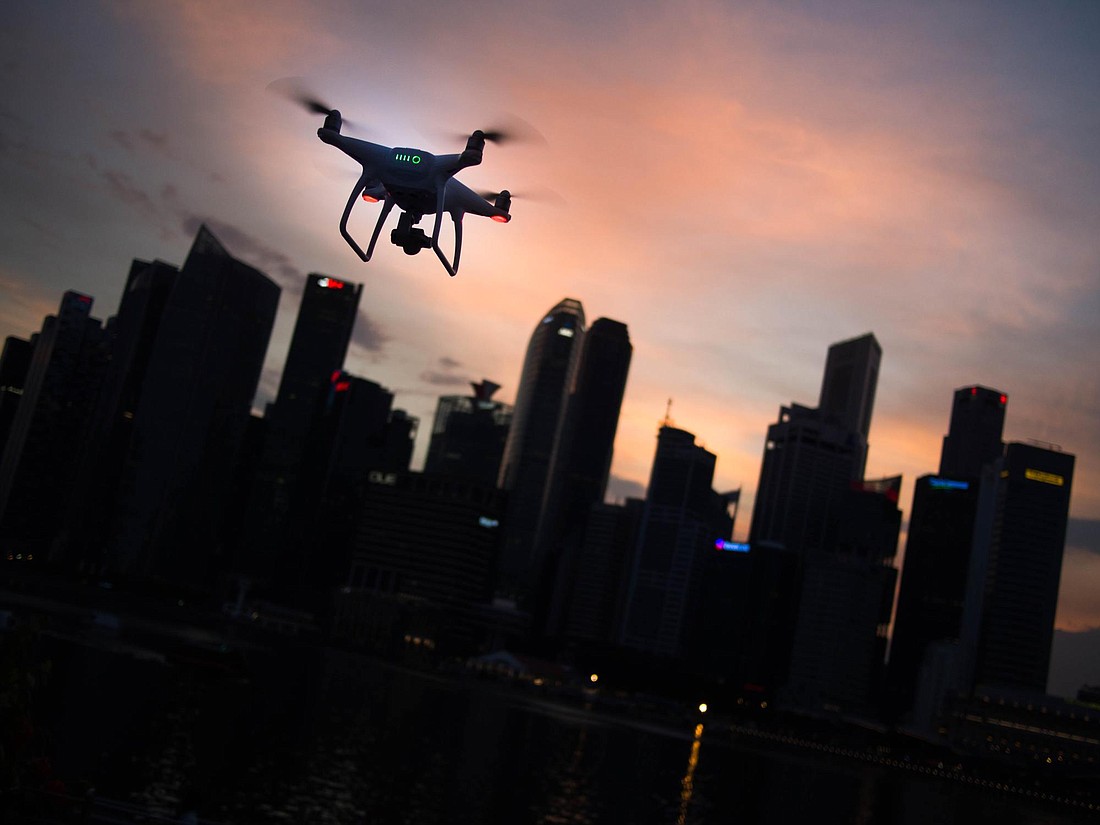- January 18, 2025
-
-
Loading

Loading

With some lawmakers expressing concerns about privacy rights, the Florida Senate could be poised to consider allowing law-enforcement agencies to use aerial drones to help with traffic management, collecting crime-scene evidence and eyeing large crowds.
The Senate Rules Committee on Thursday unanimously approved the bill (SB 44), positioning it to go before the full Senate.
Except in limited circumstances, state law bars police from using drones to gather information. The bill, sponsored by Sen. Tom Wright, R-New Smyrna Beach, would create additional exceptions to the law, including for traffic management and helping with collecting evidence at crime scenes or traffic-crash scenes.
But much of the attention at the committee meeting Thursday focused on part of the bill that would allow the use of drones to “provide a law enforcement agency with an aerial perspective of a crowd of 50 people or more.”
Sen. Dennis Baxley, an Ocala Republican who serves on the committee, praised the bill.
“This is an incredible breakthrough in being able to solve crimes, prevent problems, manage situations in a much more responsible way,” Baxley said. “True, you do need safeguards, and true it could be abused. But I would be far more concerned about drones that are in all kinds of people’s control outside of law enforcement.”
But in an acknowledgment of privacy issues implicated by the bill, the committee approved an amendment proposed by Sen. Jeff Brandes, R-St. Petersburg, that would require law-enforcement agencies to set policies and procedures if they want to use drones to eye crowds of 50 or more people.
That would include having guidelines to address issues such as how images of crowds would be retained and released. Also, the amendment would require heads of law-enforcement agencies to provide written authorization for the use of drones to observe crowds.
Brandes said lawmakers need to “watch this very carefully” and expressed concern about issues such as tying the use of drones to facial-recognition technology. He also offered other potential scenarios, such as police flying a drone along a beach or using a drone when people are holding a Second Amendment rally.
“These are complicated issues that we need to watch very carefully over the next few years because, as much I believe law enforcement gets to utilize this type of technology, we need to be very careful as a Legislature of how far we let this go,” Brandes said.
Sen. Audrey Gibson, D-Jacksonville, said Brandes’ amendment requiring guidelines was important to the bill.
“I totally agree with Sen. Brandes that we have to put guardrails around certain procedures that impact the lives of individuals,” Gibson said.
Wright said 37 counties have helicopters, while others do not have aerial-surveillance capabilities. He said the helicopters in the 37 counties are flying unrestricted. He said the use of drones could help protect large groups.
“If there’s a group of 50 or more … the idea to have the drones was to have the drones up to make sure there aren’t opposite people coming to the original group of 50 to do them harm and allows law enforcement an advantage to come quickly to protect both sides,” said Wright, who chairs the Senate Military and Veterans Affairs, Space and Domestic Security Committee.
A similar bill (HB 1049) has been filed in the House by Rep. Mike Giallombardo, R-Cape Coral, but has not been heard as the first week of the 60-day legislative session ends.